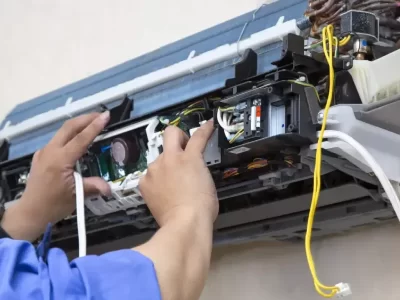Millennials in America represent around 43% of the total national home buying market. According to a recent survey, Generation Y, also known as millennials, prefer home ownership over renting. And why shouldn’t they?
Buying a home in your 20s or 30s is a fantastic way to transition out of a rental living. You can also enhance your quality of life while safeguarding a secure financial future.
However, because most millennials buying homes are first-time buyers, purchasing a home can be intimidating. But, in reality, the procedure is quite simple.
If you’re a generation y looking to buy a home, there are a few things you should keep in mind to ensure a smooth process.
What Type of Home Do You Prefer?
When purchasing a residential home, you have several options. They include; a townhouse, a traditional single-family home, and a condominium. Each option has its cons and pros depending on millennial homeownership goals.
It’s up to you to decide which type of house will help you attain your goal. Before deciding on the type of home to choose, take time to attend showings of different properties. This will help make a definite choice.
What Features Do You Want in a Home?
While it is advisable to retain some flexibility in this list, you deserve to settle for features that meet your needs.
Have your list include basic wants such as the size of the home and the neighborhood to other smaller details like the kitchen and the bathroom layout. To be certain about your listings, visit the real estate websites and search for properties that satisfy your desires for your new home.
What Size of Mortgage Do You Qualify For?
Before you start house shopping, you must know how much you have to spend. If you don’t have enough to finance the purchase fully, consider taking up a mortgage.
While considering a mortgage, get an idea of how much the lender will be willing to lend you. Consult the lenders before you guess how much you qualify for.
For lenders to determine how much they can lend you, they consider some aspects. They include your monthly income, how many other debts you have, and how long you have been doing your current job.
Before buying a home, ensure you get the loan approved first. Sellers only entertain a home buyer with a mortgage preapproval in several cases.
What Kind of a Home Can You Pay For?
Sometimes, the bank will be willing to lend you more than you need. This doesn’t mean that you should borrow that much.
Most first-time homebuyers have made this mistake. They take up a huge loan that they don’t necessarily need. After the first home purchase, they’re left paying the mortgage, with less money to cater for their monthly bills.
To decide on the loan amount, check the house’s total cost. This includes the property taxes, monthly mortgage payment, house insurance, and the property monthly maintenance fee.
Stick to Your Budget
If your motive for buying a home is driven by emotion, you probably want the freedom to express yourself and feel secure by purchasing a house of your dream lifestyle.
Most first-time homeowners end up purchasing a house that is way beyond their budget. Don’t allow yourself to go beyond your budget even if it appears to be the perfect house.
Do You Have Serious Savings?
Even if you qualify for a house loan, there’ll be an upfront cash bill of around 20% of the purchase price.
To ensure you have the amount to make the upfront house price, you need savings. If you plan to buy a home in six months, you’ll need an active high yield savings account.
Hire Real Estate Agents
The main role of a real estate agent is to guide you on how to buy property. Being a first-time homebuyer, a real estate expert will help you locate homes within your price range and meet your needs.
Apart from getting you the home, you’ll meet up and view the available houses. Once you’ve chosen one, these experts will assist you in negotiating the cost. They’ll also assist in making an offer, completing the paperwork, and getting a loan if necessary.
An excellent real estate broker can shield you from challenges you may encounter during the house buying process.
Be Sure When Submitting an Offer
You should never submit a house offer unless you’re 100% sure about the purchase. Failure to be certain could result in losing your house deposit money. Making the down payment indicates to the house seller that you’re serious about the offer.
If you happen to go out of the sale process for a reason not included in your offer letter, you will lose the deposit.
Hire an Inspector
Before you choose a home, hire a professional inspector. During the inspection, the expert identifies the specific problems with the house. You use their analysis to learn about the home.
With a home inspection, you’ll raise any issue with the seller. Hence, you will have a chance to negotiate even further on the price or have the seller repair the damages if any are identified during the inspection.
Save Copies of Your Paperwork
Once buy the house, don’t forget about the paperwork. You might have them saved on your laptops, but physical copies are also necessary. Keep the house deed and a copy of your mortgage statement.
Having these documents helps in case a problem relating to the property arises, especially in terms of ownership.
Millennials Buying Homes Doesn’t Have to Be Complicated
Buying a home for the first time doesn’t have to be overwhelming. Our guide for millennials buying homes for the first time makes it easy. You’ll have a seamless process as you acquire your first property.
We hope you found this guide helpful. If so, check out our other blog posts on homeownership.












Comments